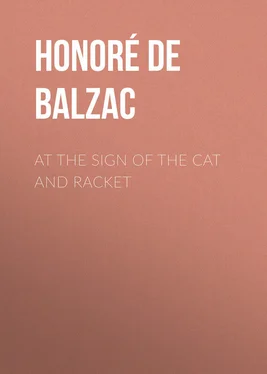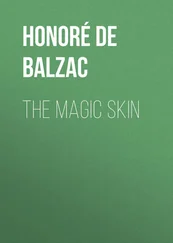When the great drawing-room on the second floor was to be prepared to receive company – Madame Roguin, a Demoiselle Chevrel, fifteen months younger than her cousin, and bedecked with diamonds; young Rabourdin, employed in the Finance Office; Monsieur Cesar Birotteau, the rich perfumer, and his wife, known as Madame Cesar; Monsieur Camusot, the richest silk mercer in the Rue des Bourdonnais, with his father-in-law, Monsieur Cardot, two or three old bankers, and some immaculate ladies – the arrangements, made necessary by the way in which everything was packed away – the plate, the Dresden china, the candlesticks, and the glass – made a variety in the monotonous lives of the three women, who came and went and exerted themselves as nuns would to receive their bishop. Then, in the evening, when all three were tired out with having wiped, rubbed, unpacked, and arranged all the gauds of the festival, as the girls helped their mother to undress, Madame Guillaume would say to them, “Children, we have done nothing today.”
When, on very great occasions, “the portress nun” allowed dancing, restricting the games of boston, whist, and backgammon within the limits of her bedroom, such a concession was accounted as the most unhoped felicity, and made them happier than going to the great balls, to two or three of which Guillaume would take the girls at the time of the Carnival.
And once a year the worthy draper gave an entertainment, when he spared no expense. However rich and fashionable the persons invited might be, they were careful not to be absent; for the most important houses on the exchange had recourse to the immense credit, the fortune, or the time-honored experience of Monsieur Guillaume. Still, the excellent merchant’s daughters did not benefit as much as might be supposed by the lessons the world has to offer to young spirits. At these parties, which were indeed set down in the ledger to the credit of the house, they wore dresses the shabbiness of which made them blush. Their style of dancing was not in any way remarkable, and their mother’s surveillance did not allow of their holding any conversation with their partners beyond Yes and No. Also, the law of the old sign of the Cat and Racket commanded that they should be home by eleven o’clock, the hour when balls and fetes begin to be lively. Thus their pleasures, which seemed to conform very fairly to their father’s position, were often made insipid by circumstances which were part of the family habits and principles.
As to their usual life, one remark will sufficiently paint it. Madame Guillaume required her daughters to be dressed very early in the morning, to come down every day at the same hour, and she ordered their employments with monastic regularity. Augustine, however, had been gifted by chance with a spirit lofty enough to feel the emptiness of such a life. Her blue eyes would sometimes be raised as if to pierce the depths of that gloomy staircase and those damp store-rooms. After sounding the profound cloistral silence, she seemed to be listening to remote, inarticulate revelations of the life of passion, which accounts feelings as of higher value than things. And at such moments her cheek would flush, her idle hands would lay the muslin sewing on the polished oak counter, and presently her mother would say in a voice, of which even the softest tones were sour, “Augustine, my treasure, what are you thinking about?” It is possible that two romances discovered by Augustine in the cupboard of a cook Madame Guillaume had lately discharged — Hippolyte Comte de Douglas and Le Comte de Comminges – may have contributed to develop the ideas of the young girl, who had devoured them in secret, during the long nights of the past winter.
And so Augustine’s expression of vague longing, her gentle voice, her jasmine skin, and her blue eyes had lighted in poor Lebas’ soul a flame as ardent as it was reverent. From an easily understood caprice, Augustine felt no affection for the orphan; perhaps she did not know that he loved her. On the other hand, the senior apprentice, with his long legs, his chestnut hair, his big hands and powerful frame, had found a secret admirer in Mademoiselle Virginie, who, in spite of her dower of fifty thousand crowns, had as yet no suitor. Nothing could be more natural than these two passions at cross-purposes, born in the silence of the dingy shop, as violets bloom in the depths of a wood. The mute and constant looks which made the young people’s eyes meet by sheer need of change in the midst of persistent work and cloistered peace, was sure, sooner or later, to give rise to feelings of love. The habit of seeing always the same face leads insensibly to our reading there the qualities of the soul, and at last effaces all its defects.
Конец ознакомительного фрагмента.
Текст предоставлен ООО «ЛитРес».
Прочитайте эту книгу целиком, купив полную легальную версию на ЛитРес.
Безопасно оплатить книгу можно банковской картой Visa, MasterCard, Maestro, со счета мобильного телефона, с платежного терминала, в салоне МТС или Связной, через PayPal, WebMoney, Яндекс.Деньги, QIWI Кошелек, бонусными картами или другим удобным Вам способом.












